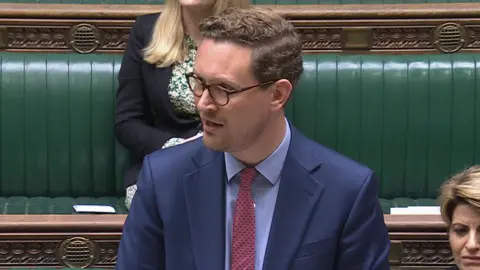In a recent discourse surrounding the allocation of funds for rail improvements in Wales, UK government minister Darren Jones urged a local Member of Parliament (MP) to express gratitude concerning the £445 million designated for Welsh railways. This funding, which forms part of a broader spending review, has been a topic of contention, especially following remarks made by Liberal Democrat MP David Chadwick, who characterized the amount as “insulting.” The situation encapsulates the political tensions surrounding railway investment in Wales, an area historically perceived as underfunded.
The £445 million investment is intended to fuel new rail projects over the next decade, including plans for the construction of five new railway stations in Cardiff, Newport, and Monmouthshire. However, concerns have emerged regarding how much of the allotted budget will be directed towards upgrading Cardiff’s primary railway station. Such issues were illuminated as the discussions unfolded, with the Welsh government appearing uncertain about whether the funds indicated would adequately cover improvements at Cardiff Central station, which is crucial for increasing transport capacity in the area.
Pivotal to this ongoing debate was the UK government’s announcement of the funding allocation last week, aiming to facilitate various enhancements across the Welsh rail network. The announcement included specific figures that encapsulated the anticipated costs of constructing five new local stations and undertaking vital improvements primarily in North Wales. While the £300 million allocated towards establishing the new stations is a focal point, it remains unclear how much of this pot would counterbalance the redevelopment needs of Cardiff Central.
In the House of Commons, further critiques were voiced by Chadwick, who pointed out the dissatisfaction surrounding the rail funding. He expressed a strong sentiment that for many in Wales, the acknowledgment of these funds as a fair deal seems delusional given the backdrop of previous financial neglect. Chadwick’s assertion was underscored by claims from Plaid Cymru representatives, reflecting a wider consensus that Wales has historically been shortchanged regarding rail investment due to the Treasury’s project classifications.
Responding to such critiques, Chief Secretary Darren Jones asserted that the current funding represents the most substantial increase since Wales gained devolution. His call for appreciation of the investment was met with skepticism, with Chadwick stating that the minister’s response illustrated a disconnect from the realities faced by the Welsh populace. The comments further solidified the impression among opposition parties that present allocations remain inadequate compared to past investments.
Additionally, Welsh Secretary Jo Stevens conveyed to BBC Wales that the funding associated with the Cardiff station redevelopment falls within the £445 million budget. As debate ensued regarding the precise distribution of these funds between new stations and existing station upgrades, First Minister Eluned Morgan underscored the necessity for transparency in how development projects will be financed. She hinted at an ongoing effort to ensure that both the five new stations and Cardiff’s central upgrade receive appropriate financial backing.
Alongside the rail funding discussions, Morgan also updated on the forthcoming local growth funds set to replace the Shared Prosperity Fund, which had previously facilitated EU aid in Wales. The newfound allocations will continue to be directed by the Welsh government, further emphasizing the importance of inter-governmental cooperation following the UK’s exit from the EU.
In summary, the recent discussions surrounding Welsh rail funding have revealed significant undercurrents of political tension, illustrating dissatisfaction with the allocated resources and the perceived need for greater transparency and equitable treatment in infrastructural investment. The upcoming decade will demand careful navigation by both Welsh and UK government representatives to address the needs of Wales’ rail network comprehensively and effectively, ensuring that future developments are sustainable and beneficial for communities across the region.











